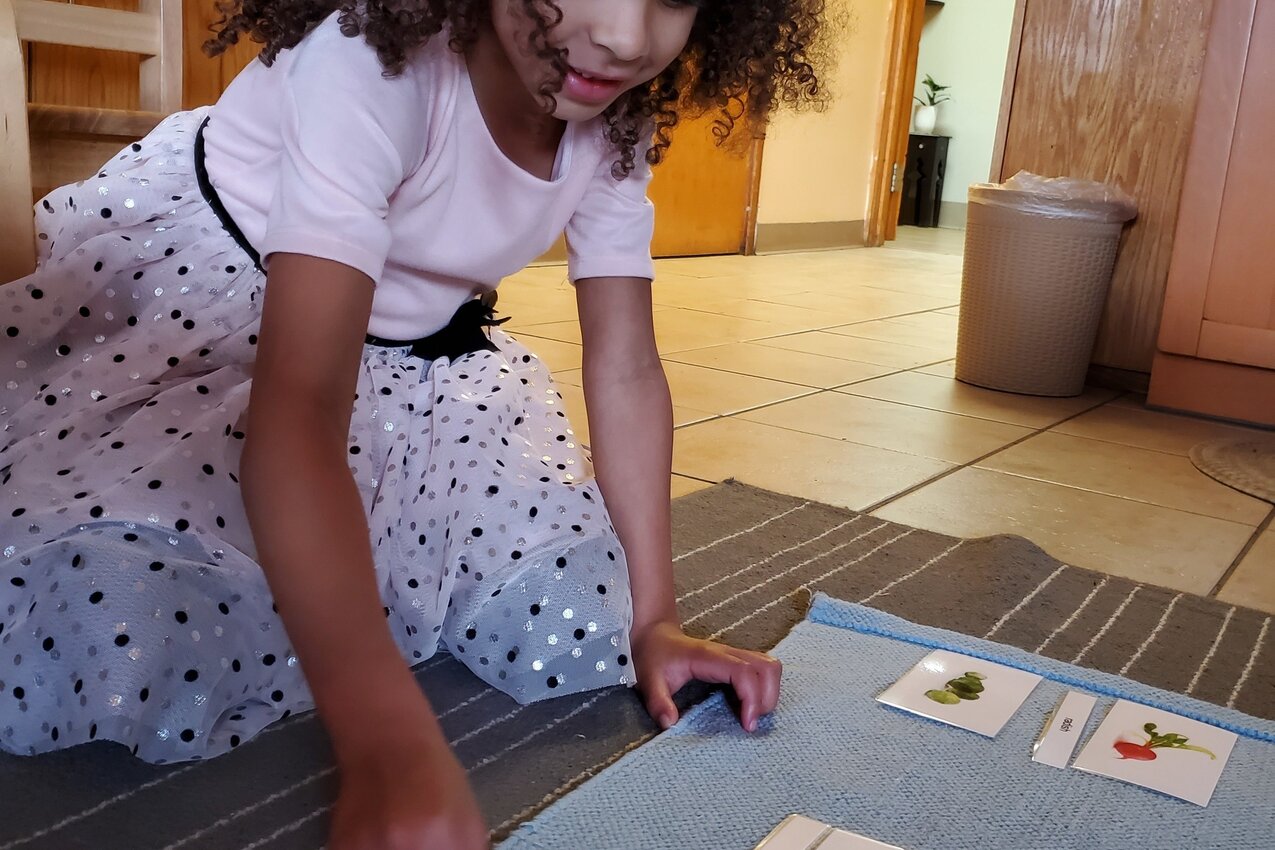
Afternoons in Montessori
Older children in a Montessori environment (aka, the Afternooners) play a vital role in our community. They are called upon to be leaders, to step up if an extra chore or duty needs to be accomplished, to help the younger ones with frustrations and to be caring, respected role models for the other children.
Afernooners relish this responsibility & eagerly offer their assistance throughout the day. They give Practical Life lessons, offer to tie shoes, play Bring Me Games with children learning their Sandpaper Letters, and are responsible for tidying up the environment in more formal chore routines than the younger children.
At home in these upcoming weeks, inspire your older primary children by acknowledging that you rely on them to be such an important part of your family’s daily routine as well. They can help give lessons to younger siblings: help make toast for breakfast, help zip up jackets, read a story to a sibling before nap time, and give and/or oversee Practical Life lessons in the home.
Now is a perfect time to set up a chore routine if you haven’t already done so. Post a list of daily requirements needed to keep the house tidy and organized. Have all family members (yourselves included, so the children see this is a family responsibility) chose how they help your community. Give your older primary children important jobs; they may grumble at first but knowing that you rely on them brings a sense of accomplishment & pride to their lives.
Afternooners work differently than their younger counterparts in that their activities can be much longer and contain more components than just a simple activity. At home, encourage this by having a large defined space available (a work table or a floor rug) that your older primary child can use to leave their ongoing work on without it getting disrupted. A little Do Not Disturb sign can also be placed on their work space to show the work is still in progress.
Encourage big activities such as:
- Researching an animal, writing and illustrating a report, and adding a poster that pertains to the information
- Printing out or making a clock face and introduce the two hands, and how to say & write the hours (then half hours, then minutes)
- Breaking open an allowance jar or your wallet and start identifying different coins. What is each coin worth? How many of each do you need to make a dollar?
- Memorizing their address, phone number & how to dial 911 for an emergency
- Printing out copies of all the countries on a continent. Does your child want to make a poster sized map and write the names? Color in the major landforms (rivers, mountains, deserts)? Learn which animals are indigenous to the region?
- Find old road maps or an Atlas. Help them trace your daily route to school. Where does Grandma/Grandpa live & how would you drive there? How would you get to your favorite park?
- Encourage them to read a recipe & then help cook/bake it later for dinner. Illustrate with pictures.
- In a sandbox or backyard dirt, or with some modeling clay, have them form as many land and water forms as they can think of (lakes, peninsulas, archipelagos, isthmus, etc)
- Find a beautiful journal or notebook and ask some questions that prompt a story to write or daily entries of their day. Encourage decorations with water color, colored pencils, fancy writing pens or markers.
- Provide opportunities to make lists of anything and everything: list of birds, of canned food in your cupboard, of books on the shelf, of math facts, of rhyming words, of types of flowers, of how many toys are in the room.
- Inspire them to write a letter to a friend and post it in the mail
Enjoy! Channel that energy, compassion, and need for big ideas & large work and see what transpires.
-Liz (Red Cedar Guide)
